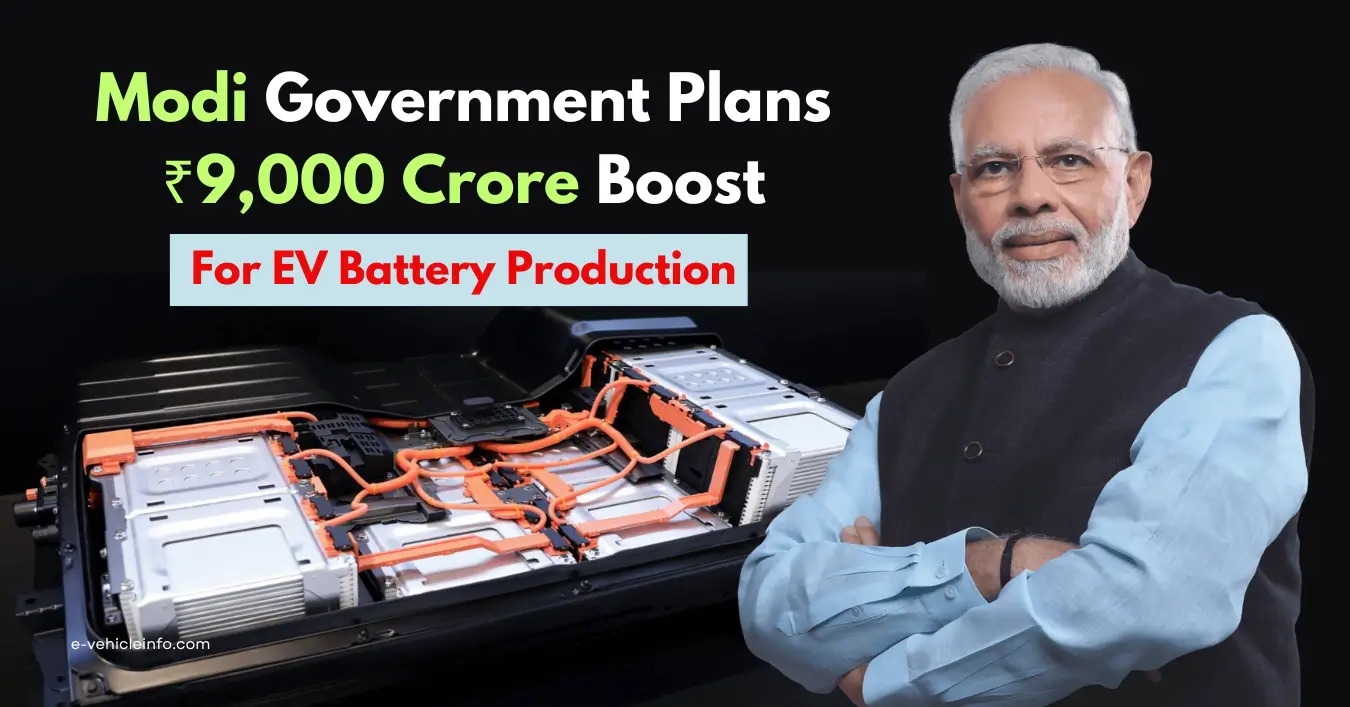 The Indian government is reportedly considering a significant ₹9,000 crore initiative aimed at boosting the production of key battery components crucial for electric vehicles (EVs) and clean energy solutions.
The Indian government is reportedly considering a significant ₹9,000 crore initiative aimed at boosting the production of key battery components crucial for electric vehicles (EVs) and clean energy solutions.
This project, led by the Ministry of Heavy Industries, has already entered the consultation phase with industry stakeholders, signaling a major step toward India’s self-reliance in this sector.
Focus on Local Manufacturing of Key Components
At the heart of this initiative is the goal of encouraging domestic manufacturing of critical components such as anodes, electrodes, cathodes, electrolytes, and copper foil. These components are vital for battery production but require significant capital investment and research and development efforts.
The preliminary discussions involved major industry players, including Reliance Industries, Hindalco, and Ola Electric, indicating the level of industry interest in this plan.
Experts predict that the initiative could have a profound impact on India’s energy and manufacturing landscape. India could become a global leader in battery production by reducing reliance on imports.
The initiative could also help reduce the cost of electric vehicles (EVs), as batteries account for about 40% of an EV’s total cost.
Furthermore, the project aligns with India’s broader green energy goals, particularly in advancing green hydrogen and electrolyzer manufacturing.
Rising Need for Anodes and Lithium-Ion Batteries
India’s demand for anodes and lithium-ion batteries is projected to increase substantially by 2030, driven by a surge in EV production. With an expected demand of 260GWh for lithium-ion batteries, the proposed initiative will support the domestic manufacturing sector in meeting these growing needs.
This project builds on the ₹18,100 crore Production Linked Incentive (PLI) scheme for Advanced Chemistry Cell (ACC) batteries, approved in 2021, which allocated 40GWh of battery capacity to companies like Ola Electric and Reliance Industries.
Export Potential and Global Opportunities
This initiative also has the potential to position India as a major exporter of battery components.
According to Debi Prasad Dash, President of the India Energy Storage Alliance (IESA), indigenous manufacturing of these components would not only cater to the domestic market but also open up export opportunities, particularly in the US and Europe.
Currently, China dominates the global supply of these critical components, and India aims to challenge this dominance.




